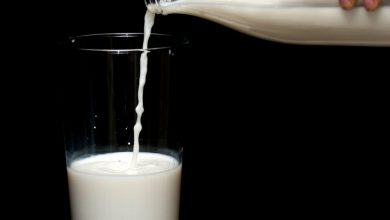
The Reason We Get Fat
Or how there might be another hypothesis to why we get fat
As laid out before in this article, the generally accepted reason that we get fat is that we take in more calories than we burn. This energy in and energy out understanding of weight gain will be referred to as the Energy Balance Hypothesis. For over 150 years, the Energy Balance Hypothesis has dominated the domain of obesity treatment and prevention. The idea has become so common as it is rarely questioned, and even more rarely studied.
While the Energy Balance Hypothesis makes sense if food is treated as a fuel source that is no different from gasoline in a car, the theory breaks down if different foods with the same calorie content cause different reactions in the body. In other words, if food is more than just fuel, the Energy Balance Hypothesis is wrong.
The lack of success for most dieters using a version of the Energy Balance Hypothesis should be enough to look for an alternative hypothesis. Science journalist Gary Taubes proposes that a Hormonal Hypothesis needs to be created to understand why we put on fat, and retain that fat, even if our calories in are less than our calories out.

The Hormonal Hypothesis
The central problem with the Energy Balance Hypothesis is that it is an observational statement of cause and effect. However, the Energy Balance Hypotheses fails to explain why our bodies hold onto extra calories rather than burning them off through more energy expenditure, or production of more body heat. Saying that more calories make humans gain weight is like saying that water flowing into a sink fills the sink up with water. It is an observable fact that the water from the tap fills up the sink but gives us no explanation of why the water is not draining, or why there is water flowing into the sink, to begin with. In short, the Energy Balance Hypothesis is an empirical observation, but not a cause of weight gain.
The Energy Balance Hypothesis should have been brought into question when in the 1960s, Rosalyn Yalow and Solomon Berson discovered that hormones could be measured in the bloodstream through a process called radioimmunoassay. In 1965, they discovered that insulin was the hormone which primarily regulated fat accumulation in fat cells. It was the first Hormonal Hypothesis that was postulated. It meant that insulin dysfunction could be the cause of obesity.
The Insulin Hormone
The discovery that insulin was the hormone that regulated fat levels in the body meant that a dysfunction of insulin caused obesity. This is not to say that the insulin system is broken in obese people, but rather to say that something was causing insulin to store fat and never let that fat be used for energy. Since food consumption is the primary driver of insulin response, it is logical to think that the type of food eaten causes insulin to react differently. It could be that some foods are uniquely fattening compared to other foods.
How is it that some foods could explain why humans gain excess fat? Insulin is a hormone that the body secretes into the bloodstream when blood sugar rises in response to food intake. Insulin signals to cells that there is plenty of energy in the bloodstream and that cells should take as much as they can. Insulin is effectively the body’s way of ringing a dinner bell that food is available to be eaten.
The body responds to insulin by taking sugar from the bloodstream and using it. Muscles will top themselves off, and other cells take what they need. If there is still elevated blood sugar, then insulin will remain high. Fat cells will take the excess blood sugar and store it as fat. Fat is only released if insulin levels remain low. The Hormonal Hypothesis of obesity can be more accurately defined as the Carb-Insulin Hypothesis of obesity.

The Carb-Insulin Hypothesis of Obesity
The idea that certain foods can be uniquely fattening has been tested rigorously in animal studies and is known as the endocrine-regulatory (carbohydrate-insulin) hypothesis of obesity. Nearly all animal studies show that insulin that is spiked by processed carbohydrates regularly causes fat to accumulate in the animal. Even with vigorous exercise, fat accumulation will continue if simple carbohydrates are eaten.
Carbohydrates that spike insulin are commonly known as processed carbs and sugar. Foods such as white flour, sugar, honey, corn, and potatoes cause a spike in insulin once they are eaten. The reason is that the sugar does not need to be fully digested by the body to make the sugar in the food usable. The sugar quickly passes from the stomach into the bloodstream and is usable for the body to use. Insulin rises quickly in response to the sudden rise in sugar present in the bloodstream.
Because processed carbs contain a high proportion of calories in the form of sugar, the body quickly fills up on all the needed energy, and the excess calories are stored as fat. The more processed carbs or sugar, the more insulin rises, and the more sugar goes into fat.
To compound the issue of insulin is that, if insulin remains high, there is no reason for the body to let go of body fat. Insulin means there is plenty of energy in the bloodstream, and stored energy in fat is not needed.

The Carb-Insulin Hypothesis Vs. The Energy Balance Hypothesis
Energy Balance Hypothesis has been the dominant theory of obesity since the first scientists started working on the problem over 150 years ago. To this day, there has never been a large-scale human trial that looks at a random population of people that do not eat processed carbs or sugar and compare them to standard Americans that eat lots of processed carbs and sugar. Such a study would require tens of thousands of people and take over a decade to perform for results to have significance.
While there have been ample animal studies, these studies are not enough to claim that The Carb-Insulin Hypothesis is more accurate compared to The Energy Balance Hypothesis. However, it is becoming clear that sugar and processed carbs do not help with weight loss, even if the theory has not been fully tested yet.



